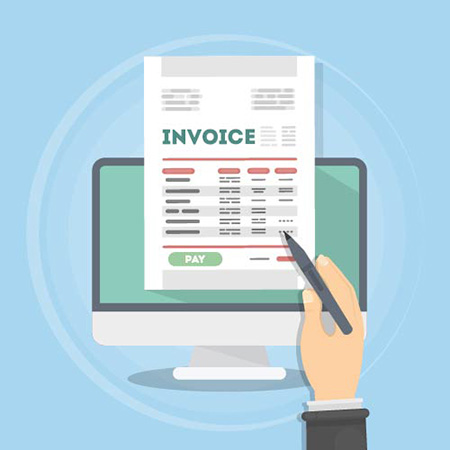
Knowing how to invoice for expenses when you first start out as a contractor, regardless of your profession, is crucial to ensure that you keep up a professional appearance and can breeze through the first few months of your contracting career.
As a contractor, you are likely to incur a few expenses when providing your services to clients. For example, you may need to travel and visit premises in another town (an expense which you incur), or you may need to purchase a piece of equipment on behalf of your client (a disbursement which you will invoice). To help you navigate the expense and disbursement process, our accountants for contractors in London at TaxAgility share three common methods that you are likely to encounter when invoices your clients for your expenses.
Adding VAT
Regarded as the simplest invoicing method, adding VAT involves charging VAT on any expenses you have incurred while working or carrying out your services for your clients, such as hotel stays, public transport expenses and mileage. In this case, you add the VAT regardless of whether or not you were charged VAT on these items in the first place.
For example, you performed £2,000 worth of work for your client and you incurred £40.00 in petrol cost due to driving out to an in-person meeting with your client (a cost they had agreed to reimburse), you would invoice them £2,448 and the breakdown is as follows:
- £2,000 for the work
- £40 for petrol cost
- £408 (20% VAT on £2,040)
Splitting VAT
In the event that your clients do not like the above method as they are paying VAT on the petrol cost twice, then you will need to remove any VAT you paid on expenses you claim back from them, then applying VAT to your final, gross invoice.
Let’s say you performed £2,000 worth of work for your client, and you also paid £1,200 (with VAT) for a training course which your client suggested you attend and promised to reimburse you for. In other words, the training cost is actually £1,000 + VAT £200.
In this case, you will invoice your client £3,600 and the breakdown is as follows:
- £3000 (£2,000 for the work + £1,000 for the training cost)
- £600 (20% VAT on £3,000)
Disbursement
Disbursement payments occur when you purchase something on behalf of your client and pass that cost over to them in your invoice. In this instance, you do not charge VAT on the items and you cannot claim back any VAT.
As explained by HMRC, there are various rules surrounding disbursement including:
- You paid the supplier on your client’s behalf and acted as the agent of your client.
- Your client received, used or had the benefit of the goods or services you paid for on their behalf.
- It was your client’s responsibility to pay for the goods or services.
- You had permission from your client to make the payment for the said goods or services.
- Your client knew that you were not the supplier of the goods or services.
- You show the costs separately on your invoice.
- You pass on the exact amount of each cost to your customer when you invoice them.
- The goods and services you paid for are in addition to the cost of your own services.
Here is an example: you performed £2,000 worth of work for your client and you incur £40 in petrol costs which the client would pay. To do the job, your client also asked you to purchase a piece of electronic (a Geiger counter worth £200) which they would need in the project. You will invoice £2,648 and the breakdown is as follows:
- £2,040 (£2,000 for the work done + £40 petrol expenses)
- £408 (VAT on £2,040)
- £200 (Geiger counter disbursement)
How can TaxAgility help contractors?
At TaxAgility, we understand that contractors are constantly juggling different tasks at once, which is why we want to step in and help. With the assistance of our dedicated accounting and tax services for contractors, you can focus on building your business while we manage your financial and tax affairs.
Our contractor tax and accounts services include:
- Setting up a limited company to help you get started
- On-going accounts and bookkeeping management for contractors
- IR35 support for contractors
- Construction Industry Scheme (CIS) support
- Corporate tax advice
- Self-Assessment tax returns
- Personal investments
If you would like to arrange a one-to-one meeting to discuss any tax or invoicing queries you might have, we offer a no-obligation, free consultation. Contact us today on 020 8108 0090 or get in touch with us via our Contact Page.
If you found this useful, take a look at:
- Understanding dividends
- IT contractor tax: What do I have to pay?
- Business expenses you can claim as an IT contractor
This post is intended to provide information of general interest about current business issues. It should not replace professional advice tailored to your specific circumstances.
